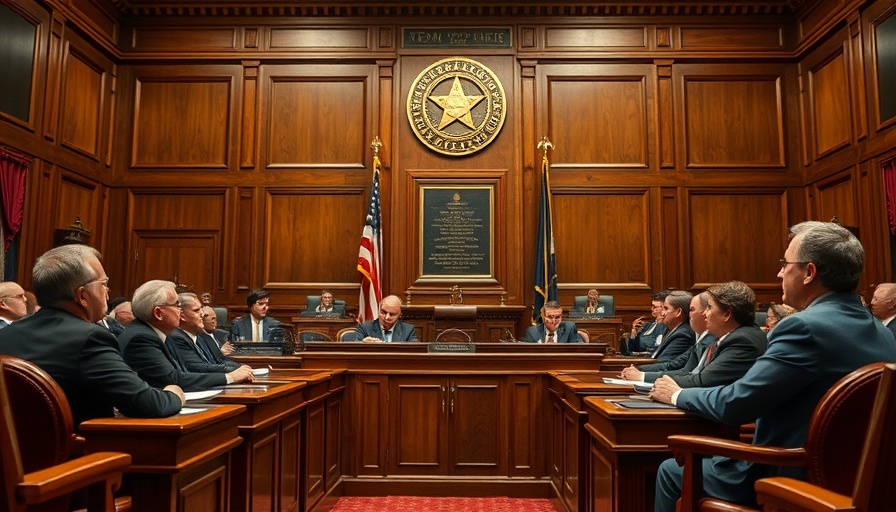
Texas Redistricting: A Battle for Representation
The approval of House Bill 4 by the Texas House Select Committee on Congressional Redistricting poses critical questions about representation in the Lone Star State. With this Republican-backed initiative set to dramatically redraw Texas' congressional maps, Texas Democrats are left with one powerful strategy: breaking quorum.
The Significance of Quorum Breaking
Breaking quorum is a tactic recently used by Texas Democrats to prevent crucial legislation from passing without bipartisan support. A reminder of this strategy's weight can be traced back to 2021 when Democrats fled the state to block restrictive voting laws. Houston Public Media reports that the makeup of the Texas House, currently 88 Republicans to 62 Democrats, makes it clear that the absence of a handful of Democrats could render the House ineffective. This move is designed to underscore their opposition against what many view as disenfranchisement.
The Public's Voice: Outcry Against Redistricting
What makes this situation even more critical is public dissent. During the committee's hearings, 98.8% of testimonies opposed the redistricting map. State Rep. Jon Rosenthal (D-Houston) captured this sentiment, noting, "The people of Texas spoke... to take that ability and power away is straight-up, intentional racial discrimination and a violation of the Voting Rights Act of 1965." Such overwhelming opposition illustrates a disconnect between community sentiment and legislative action.
Racial Implications: What’s at Stake?
The ramifications of House Bill 4 extend beyond political maneuvering; they touch upon the crucial issues of equality and representation. With accusations that the map dismantles majority-minority districts, this redistricting could severely impact the voting power of Black and Latino communities in Texas. According to Rep. Chris Turner, the redrawing is not merely a change in boundary but a calculated attack upon the democratic process itself.
Looking Ahead: Potential Outcomes
The upcoming vote on HB 4 serves as a litmus test for Texas politics. If Democrats choose to enact another quorum break, the consequences could spread far and wide, creating ripples beyond state borders. The implications of this legislative battle resonate deeply with the Greater Houston community, making this not just a political issue but a civic one. Citizens are encouraged to stay informed through local news stations such as Houston Public Media, helping ensure community voices remain vibrant and impactful.
Call to Action: Stay Engaged
Civic-minded citizens and community advocates are encouraged to take action. By engaging with local media and participating in public discussions, residents can influence the direction of legislation affecting their rights and representation. Follow your local NPR station’s coverage for ongoing updates and resources that matter.
Ultimately, as the redistricting debate unfolds, the message remains clear: it is vital for Texans to make their voices heard—now more than ever.
 Add Row
Add Row  Add
Add 



Write A Comment